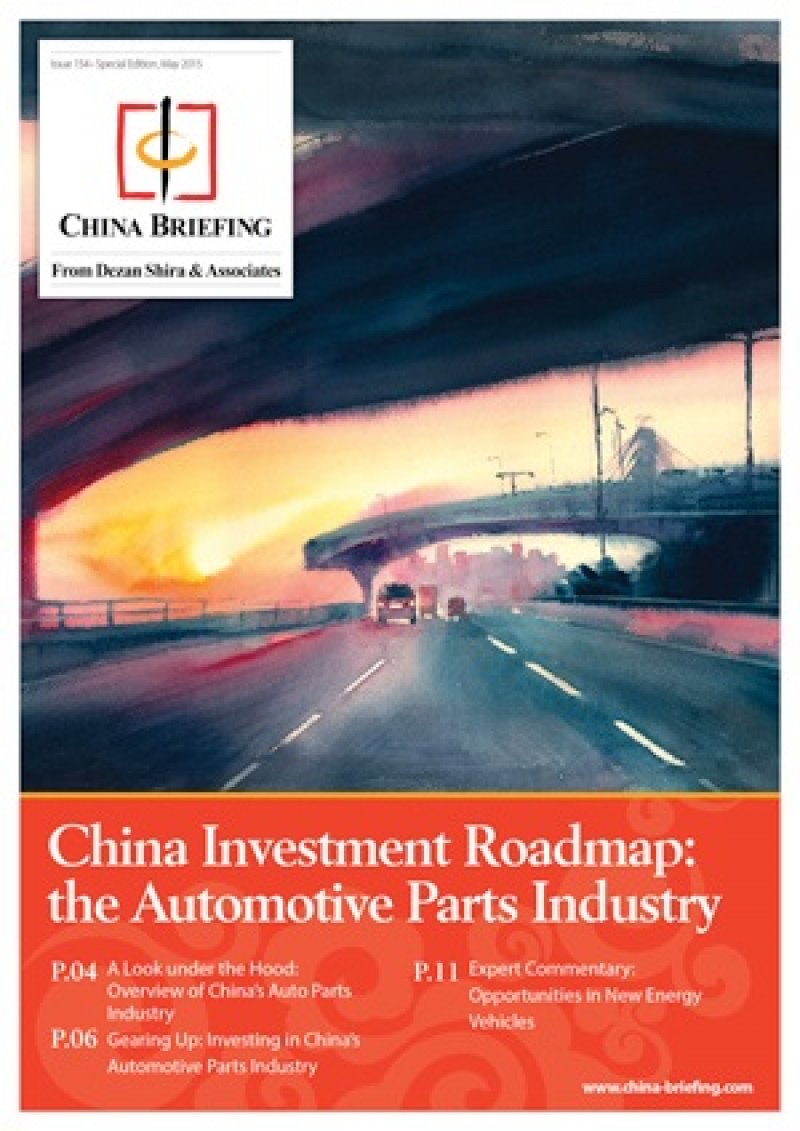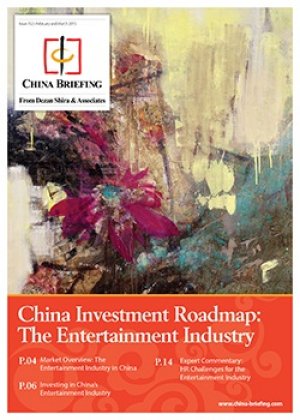China – Unmatched Opportunity, Unmatched Volatility
The annual Euromoney China Global Investment Summit has just taken place in Hangzhou, attracting over 500 delegates and scores of high ranking Chinese officials and business leaders from around the world.
With foreign investors in China being asked about China’s immediate future – and especially whether the recent economic situation has long term effects on corporates investing in the country – the Global Business Outlook session of the conference was always going to be key. Moderated by Tony Shale, Euromoney’s CEO for Asia, and including China based executives Davide Barbon, GM of ITT Motion Technologies, Victor Hu of Macquarie Infrastructure, David Jin Chairman of Harman International, Andrew Wu, President of LVMH China, and Jonathan Woetzel, Director of the McKinsey Global Institute, the panel concentrated on the latent China potential – as well as the potential for a downturn.
The audience were at once reminded just how far China has come in the space of 35 years – where the Cultural Revolution is still a fresh memory amongst all of China’s middle age citizens. Going from destruction of property and all assets being owned by the State, to having the ability to create wealth, purchase property, set up businesses, travel abroad and own cars while being able to invest in stocks and shares, showed how far the country has come. That transition and the speed of it has often been forgotten by Western media, who regularly concentrate on short term issues rather than longer term achievements and goals.
That said, there is still huge potential in China, especially when one notes that Chinese consumption levels rank at 35 percent against an average in OECD countries of 55 percent – meaning that there is still significant room for growth (author’s note: it wasn’t made clear what consumption statistics these referred to. If anyone can elaborate, kindly leave a comment). It was pointed out that China’s population moving into middle class consumerism will not just disappear, meaning that it is almost an inevitability that this development will proceed. It was predicted that as a result of this, rather than media concentrating on China’s GDP growth, investors should recognize that China can be relied upon to provide at least another decade of strong growth, and especially compared with Europe.
In terms of national GDP growth, the panel assumed that growth in China was probably about six percent (the Asian Development Bank put it at 6.8 percent yesterday). It was also noted that growth was not constant across China and that some areas may even be experiencing negative growth. (Author’s note: there are indications from my own research and contacts that growth in North-Eastern Provinces such as Liaoning is about two percent; Beijing 3.5 percent and Shanghai five percent, whereas other border regions of China, such as Inner Mongolia, Xinjiang, & Yunnan, are experiencing growth rates in excess of the current national average due to infrastructure build and development to expand overland cross-border trade).
In terms of the recent Chinese stock market slide, this was deemed as “largely irrelevant” by the panel and as not being a barometer of how the Chinese economy or its companies are faring. It was also pointed out that when it comes to the subject of China ‘re-balancing’ its economy, that China had never been an economy led by exports, but an economy driven by investment. However, the transition to consumerism is in effect and is taking place.
In terms of China overall, it was also explained that the country still represents ‘unmatched opportunities’, but also ‘unmatched volatility’; the latter being because the sheer physical size and intrinsic nature of Chinese consumerism is changing so quickly. Some foreign investors in the retail sector, it was noted, had ‘not been listening to their customers in China’ and had experienced a reduction in sales. However it was noted that this was because Chinese shoppers have moved en mass to an online shopping experience. If retailers were not aware of these trends – where and how Chinese consumers prefer to shop – they would experience serious problems. The sight of empty shopping malls in China demonstrates less of a consumer downturn than an entire ‘revolution’ in the behavior of Chinese shoppers. This was what was meant by ‘volatility’ – fast moving changes in consumer behavior in China, driven by IT as well as a need for a more China tailored, specific market approach are now driving uncertainty amongst less well prepared businesses. China has an extremely young market and that the speed of competition is amongst the fastest in the world. This also drives volatility into the Chinese marketplace, as the competition for the attention of the Chinese consumer only increases. Engaging with Chinese consumers to find out exactly what they want and how they want to buy it is now a key issue for foreign investors to concentrate on.
It was also noted that mainland Chinese consumers spend far more overseas than they do in China, suggesting growth remains in the Chinese market. (Author’s note: I disagree somewhat with this point. Chinese consumers spend more overseas than they do in China on luxury and other products because it is cheaper to do so. Luxury taxes and import duties on many foreign products result in higher domestic prices; one reason that Hong Kong – which is a duty free port – attracts so many mainland ‘tourists’. In fact, many are tourist tax shoppers, looking to purchase items more cheaply than on the mainland. This phenomena is tax driven and would change overnight should Beijing reduce import duties on pertinent imported foreign products). Services in China are also increasingly moving online, and Chinese consumers want quality products at good value.
In summary, the panel concluded that they were ‘cautiously optimistic’ about a China market that was seeing more complexities, and increasingly required more detailed studies and market research resources to understand.
From my perspective, it seems apparent that the old sales approach of mainly Western-based consumer marketing is coming to an end in China. The Chinese market is far larger, growing at a stronger rate, and becoming more discerning in terms of how it wants the product displayed to them. This requires references both on Chinese traditional cultures, as Chinese consumers want to purchase products and services that they can relate to, as well as in IT, where the very nature of purchasing – increasingly from the comfort of one’s own home – is far outstripping the ‘shopping mall’ experience. China has become too busy and crowded and time-consuming for malls to remain the only outlet.
Longer term, it appears China’s growth rate can be expected to be about 5-6 percent over the next decade. However, this is only a national average – some areas will do better, others worse. Research upon Chinese consumer behavior needs to be far more detailed in terms of geographic spread, as well as in understanding purchasing behavior. Undoubtedly, there will be some spectacular failures, especially amongst those foreign investors who have not understood the Chinese market properly. When that happens, it will not be indicative of a China failure; it will be indicative of a poor China investment strategy.
China, as a market, now requires very specific attention in order to succeed. It is no longer good enough to export Western concepts into the country or to be a generalist. Specific and proven expertise needs to be acquired in order to make China a success story for foreign investment into the country.
|
Chris can be followed on Twitter at @CDE_Asia. Stay up to date with the latest business and investment trends in Asia by subscribing to our complimentary update service featuring news, commentary and regulatory insight.
|
![]()
China Investment Roadmap: the Automotive Parts Industry
This issue of China Briefing presents a roadmap for investing in China’s automotive industry. We begin by providing an overview of the industry, and then take a comprehensive look at key foreign investment considerations, including investment restrictions, tax incentives and manufacturing requirements. Finally, we discuss foreign investment opportunities in a part of the industry that receives substantial government support: new energy vehicles.
China Investment Roadmap: The Entertainment Industry
In this special edition China Briefing Industry Report, we cast our gaze over the broad landscape of China’s entertainment industry, identifying where the greatest opportunities are to be found and why. Next, we detail some of the most important issues for foreign investors to be aware of, including legal, regulatory, and tax considerations specific to the industry. Lastly, we provide an insider analysis of the sector’s unique HR & payroll challenges.
 China Investment Roadmap: The Medical Device Industry
China Investment Roadmap: The Medical Device Industry
In this issue of China Briefing, we present a roadmap for investing in China’s medical device industry, from initial market research, to establishing a manufacturing or trading company in China, to obtaining the licenses needed to make or distribute your products. With our specialized knowledge and experience in the medical industry, Dezan Shira & Associates can help you to newly establish or grow your operations in China and beyond.
- Previous Article Anti-Trust in China – The Practitioner’s Guide
- Next Article U.S. Reluctantly Accepts China’s AIIB












